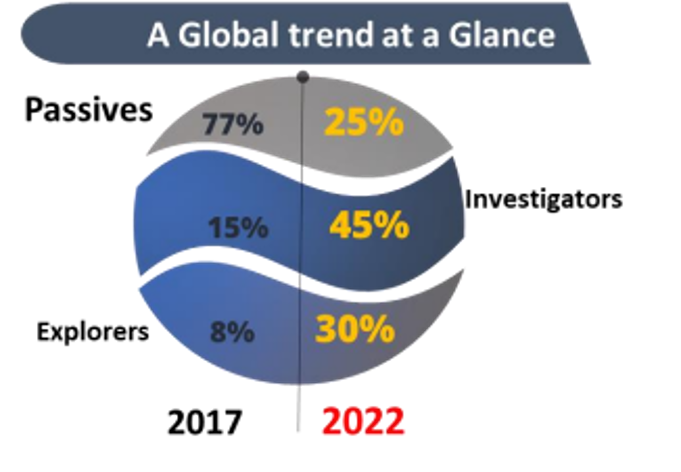Blockchain: a bigger idea in need of broader and expanded thinking – Doha News

Blockchain is a growing “forest” of trust, cybersecurity, auditing and regulations to ensure the best, most transparent and most secure records.
Blockchain is a shared, immutable ledger that simplifies the process of recording transactions and tracking assets in a business network – which can be both tangible (a house, car, cash, land) or intangible (intellectual property, patents, copyright, branding).
Blockchain helps in the verification and traceability of multi-step transactions that need verification and traceability by providing secure transactions, reducing compliance costs and speeding up the data transfer process. Blockchain technology can also help contract management and audit the origin of a product.
Blockchain as a new technology contains almost daily upgrades, evaluations, assessments and involvement of its use and applicability to everyday life across multiple domains.
As a platform, blockchain is perceived to provide significant opportunities to disrupt traditional products and services due to its distributed, decentralized nature and features such as blockchain record duration, and the ability to run smart contracts. These features make blockchain technology-based products or services significantly different from previous Internet-based commercial developments.
Currently, stakeholders in several sectors are largely unaware of the social benefits and potential of blockchain technology. The technology-based products and releases are documented and produced to create an awareness of this gap and not as a case study.
Blockchain Maturity Models (BMM) are evolving and playing a key role in providing organizations with the necessary assessment criteria and evaluation parameters to explore the migration of existing technology platforms to blockchain-based services. This benefits end users from all domains with data transparency and auditing capabilities.
Blockchain will be an incorruptible digital ledger of every transaction that can be programmed to record not just transactions, but virtually anything of value from every domain.
Blockchain technology is predicted to disrupt any field of activity that is based on any transaction or record that was created, exchanged, modified or deleted in printed or digital form, showing the time any action had taken place.
An illustration of some selective domains mentioned below on Blockchain impact will be beneficial for such providers.

A global trend in the third quarter of 2022, as shown below, has given results and value creation as a “core and mandatory” need for all transaction users who want to benefit from the benefits seen, while implementing a Blockchain platform.
1. Improve transparency to end users
one. Centralized ledgers are blockchains that offer transparent, verifiable records of each transaction, both of which validate underlying other forms of fraudulently duplicated value.
2. Reduce threats of hacking
one. Data contained in the blockchain is encrypted, making the information of little value for coercion, extortion or corporate espionage.
3. Increase patient record security
one. Attempts to hack or alter the ledger will be rejected by the wider network.
4. Eliminate the solution
one. Eliminate ICT solution processes and provide an efficient streamlined workflow for the benefit of all end users.
5. Minimize IT consumption and downtime
one. High value machines cost millions. Downtime for them is not only very costly to organizations and facilities, but also, more importantly, interrupts end users from getting the best possible results or rather “value”.

Each domain is undergoing a major shift moving to next-generation implementations towards data management, as illustrated by the global trend, with a recent shift from passive technology users to more investigators and explorers.
There is an important need for a universal transparent record in a distributed ledger and new approaches to secure collaborative data when we can manage our own transactions outside the system to improve performance and keep ICT costs down.
As a promising and proven breakthrough, such implementations have led to end-user requirements and needs being delivered through advanced techniques that will reduce late detection of errors with various advanced support systems and self-management tools.
Radhakrishnan M is a Chief Technology Advisor and Innovation/Growth Leader across several Blockchain initiatives and emerging technologies. He is also the Chapter Lead for the Government Blockchain Association (GBA) headquartered in the US.
The views and opinions expressed in this article are those of the authors and do not necessarily reflect the official policy or position of Doha News, its editorial staff or staff.
























